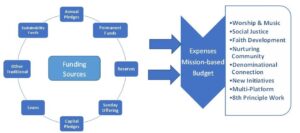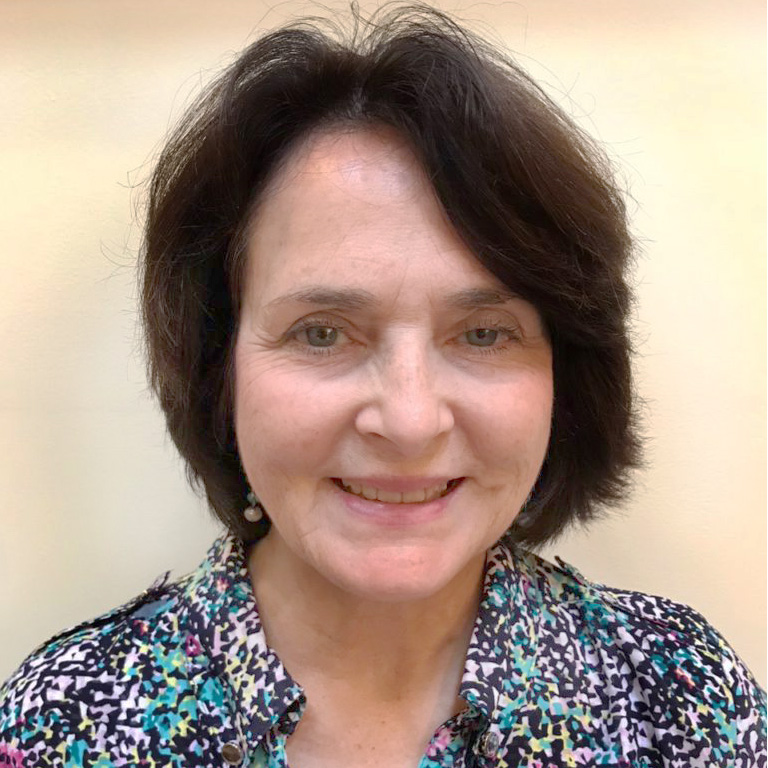It’s that time of year when many Unitarian Universalist congregations gather for their Annual Meetings. New budgets are prepared and approved. Boards and Finance teams have reviewed pledge projections and other sources of income; and they’ve estimated costs for everything from the comprehensive role a minister plays, to improved technology capacity, to lightbulb replacement, to insurance, and possibly even recurring mortgage payments. Congregations are planning for more in-person and on-site activities; many have aspirations for growth in lifespan education and membership growth and retention. Many are prioritizing their social action budgets in the face of an increasingly challenging environment for addressing justice, equality, climate change, and more.
Our Annual Meetings are more than a ritual for conducting congregational business; they are a time of reflecting, reckoning, and navigating into the future with our values and principles guiding us.
The need for a longer outlook on financial planning is an ever-present pressure, even more so now in light of the changing demographics and economic foundations of our communities. How can we best prepare for the next few years as well as set the stage for our congregations’ to thrive well into the future? To start the process, we suggest two approaches:
First, develop a Comprehensive and Strategic Financial Plan.
Comprehensive = All funding streams and sources; and all expense categories
Strategic = Thinking long range, and tying expenses to mission and ministry.

Taking time to prepare a comprehensive and strategic financial plan can help leaders and congregations balance budgets, sustain priority programs and activities, explore multiple planning scenarios, educate and inspire congregants about the value of their giving, and keep folks thinking of the future as well as the here and now. In short, it will help you talk about money in church, in a way that is inspiring and somewhat removed from the stresses of meeting the coming pledge goal.
Second, keep in mind some fundamental ingredients for financial sustainability. Many congregations have some or all of these elements, and together, they provide an optimal financial preparedness inventory. The different fund types shown below provide multiple opportunities to tap into the spirit of generosity of our members.
- Balanced Annual Operating Budget, at least over 3 – 5 years
- Reserve Fund – standards vary: 6 months to 2 years equivalent of annual operating budgets
- Sustainability Fund – a new type of fund that helps fill unanticipated gaps as occurred during the pandemic
- Endowment Fund – permanent reserve plus accessible funds as needed.
- Appropriate Investment oversight and strategic review
- Gift acceptance policies – put parameters on gifts that come with restrictions
- Diverse Revenue Streams
- Actively marketed and supported Legacy Society
- Easily accessible E-giving methods
- Capital or Special campaign every 5 – 10 years.
- Minimal or Retired Debt – minimize burden on next generation
- Strong Membership cultivation, engagement and retention program
For a more in-depth look at financial sustainability, Barry Finkelstein and Liz Coit joined with leaders from three UU congregations in a pre-recorded workshop for General Assembly entitled, Planning for Financial Sustainability in Changing Times. This presentation includes stories about strategic financial planning in small, medium and large congregations and covers both tried and true and innovative financial planning tools in the changing contexts of our congregations. Our goal is to help you build your congregation’s roadmap for a sustainable – thriving – financial future. You will be able access this video once the pre-recorded sessions go live on UUA’s General Assembly web pages.

Over a 25-year career in resource development, Liz has led fundraising efforts including major gifts campaigns for Prosperity Now, Center for Community Change, Ms. Foundation for Women, and Legal Momentum (formerly NOW Legal Defense Fund). Liz has been a member of All Souls Unitarian Universalist Church in Washington, DC since 2003. Reach Liz at Team@StewardshipForUs.com

